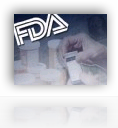Melamine, a chemical used as a flame retardant is used to make cooking utensils and industrial coatings, is rich in nitrogen; it makes an attractive low-cost additive to milk and other foods; as nitrogen registers as protein on many routine tests. This is why it is so popular as at created the impression that the food contains much more protein than it really does. 
I was speaking the other day to a contractor who does remodeling on kitchens, and yes the counters that go into modern day kitchens too have melamine, so I guess in a way it could make one think this is almost like munching on the kitchen counter, but also so durable that in China they are are also considering making bricks from the melamine to recycle, and then you think the chemical is making it in to our bodies through food products, pretty scary knowing that the product is added on purposes to show a high nutritional food value.
So once again, I will come back around to using technology, business intelligence to monitor the production of food products, and as we become more global, we can’t rely on trust unfortunately, anywhere. When you stop and think about technology monitoring the contents of each lot and reporting both let’s say to the FDA here in the US, and to the local company, this would stand to keep many more honest when it is not as easy to trick the consumers. Sure it will take some expense and effort to establish, but in reality this is something where every country could benefit, especially knowing what is going to be shipped before it ever takes place, along with labeling product properly with the country, state and city of origin, so recalls when needed can be accomplished before others become ill or die due to tainted food products. A bank of servers and a little bit of high tech monitoring would need to be established, and after all, we have it today, so why not set up a practice of monitoring the world’s food suppliers, everyone would benefit.
Under further reading I went into a little more detail, and if we want to be assured of safe food products worldwide, a bit of business intelligence will help get the job done, along with scheduled and non-schedules on premise visits world wide with companies that are producing food products, otherwise we are at the risk of the company producing the products and of recent we are seeing how that is not only costing lives but also creating an environment of not knowing which food products and pharmaceuticals are safe and have been approved by the lot with computers spitting out a quality report to both the manufacturer and to monitoring agencies such as the US FDA and to other monitoring entities outside the US as well. BD 
(AP) -- Li Xiaokai died of kidney failure on the old wooden bed in the family farmhouse, just before dawn on a drizzly Sept. 10. Her grandmother wrapped the 9-month-old in a wool blanket. Her father handed the body to village men for burial by a muddy creek. The doctors and family never knew why she got sick. A day later, state media reported that the type of infant formula she drank had been adulterated with an industrial chemical.
Deaths uncounted in China's tainted milk scandal
Related Reading:



0 comments :
Post a Comment